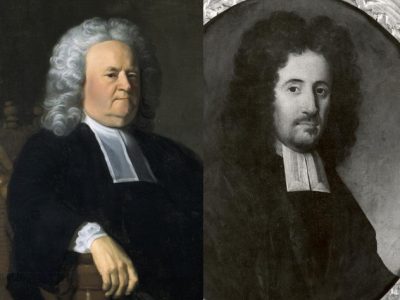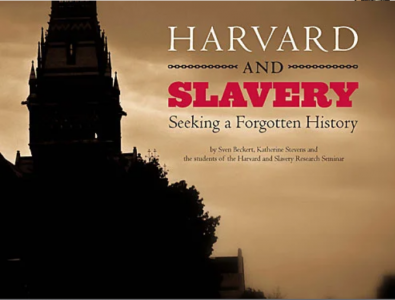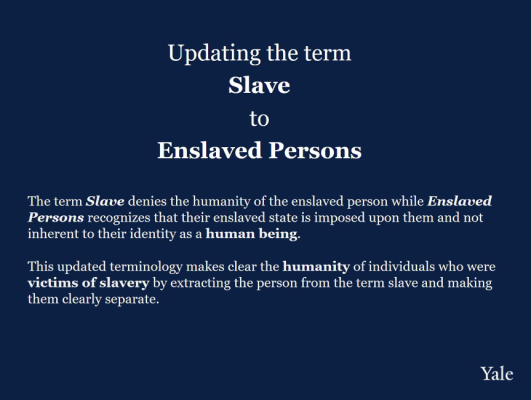
Slavery at Harvard is in the news. The announcement of a $100 million fund made all the major newspapers and cable news outlets. The Harvard-hosted hybrid conference following the announcement “Telling the Truth about All This: Reckoning with Slavery and Its Legacies at Harvard and Beyond,” on April 29, 2022, received less coverage. That conference also is important in chartering the future course Harvard may take. While there is insufficient space here to review the proceedings of the conference, there are some observations which can be made about Harvard’s position within the current slavery debates.
To start with, the Harvard conference can be put in context. It followed related Yale conferences:
Yale and Slavery in Historical Perspective, October 28-30, 2021
Legacies of Slavery: Past, Present & Future, April 5, 2022
and preceded the Brown conference:
Reparations Conference by The Center for the Study of Slavery and Justice at Brown University, May 5, 2022.
Truth be told, it is hard to keep up with these Ivy League conferences. And thanks to Zoom, it is now possible attend all of them at no cost and without leaving home.
Sticking to the Harvard conference in this blog, what was the main takeaway from that conference?
For me, it is that IT WAS A VERY IMPORTANT CONFERENCE AT HARVARD. Certainly, Harvard is a globally prestigious institution. Its words and actions carry weight. And in case you were not sure about that, speaker after speaker reminded the audience that this WAS A VERY IMPORTANT CONFERENCE and it was being held at HARVARD. Even online, you could feel the goodness radiating from the participants and the audience as they were part of a VERY IMPORTANT CONFERENCE AT HARVARD.
So is Harvard ready for a primetime leadership role?
THE NUMBERS GAME
According to the Harvard report, slavery there from the college’s founding in 1636 to the abolition of slavery in the state of Massachusetts in 1783 included 70 people. What is your first reaction to the number 70 over 147 years? Does it seem like a lot? 70 people over 147 years is not a shock and awe number. About the same number of Ukrainians can be killed in a single Russian artillery strike on a school, a hospital, or a theater. I mention these figures because numbers matter and affect perceptions.
For example, Peniel E. Joseph, Barbara Jordan Chair in ethics and political values and the founding director of the Center for the Study of Race and Democracy at the LBJ School of Public Affairs at the University of Texas at Austin, the number was 70 too many:
The anguish that I felt reading those names an parts of their stories was magnified as I pondered the gaps in the narrative, the information we don’t have about them. I ache for that knowledge, even as I understood this would cause me (and others) more pain (Opinion: Why Harvard’s report demands our attention, CNN 4/29/22 written following the conference).
However despite the personal anguish he felt, Harvard itself undermined the impact of the extent of slavery at the college.
During the five decades between 1890 and 1940, approximately 160 Blacks attended Harvard College, or an average of about three per year, 30 per decade.
The figure of 160 over fifty years projects to 480 over 150 years. So the student/slave ratio is 70/480 over roughly the same time periods. If the admission number is used to show the racism due to a low number of students, then the implication is the number 70, barely 1/7 as much, is indicative of a much smaller problem. These differences in the use of numbers to deliver a message is the type of question Harvard could be asked to explain.
Speaking of admissions at Harvard, the full story of admissions should bring the issue of race to the present. In 2014, the organization Students for Fair Admissions brought a lawsuit against Harvard concerning discrimination against Asian Americans and the affirmative action program in Harvard University’s student admissions process. In January 2022, the Supreme Court agreed to hear the case and consolidated it with a similar case related to admissions practices at the University of North Carolina. This may not be the same Supreme Court that is in the process of ruling on abortion. By the 2022-2023 term, Justice Breyer will have stepped down and his replacement Ketanji Brown Jackson, will recuse herself from the case because she is on the Harvard Board of Overseers.
So again if Harvard wants to take a leadership position on race, it might want to include the issue of admissions policies today.
THE IVORY TOWER
Another issue to be discussed is the relation of the slave-colleges to the surrounding community. Some colleges are located in college towns. This means just as a factory may have once dominated a particular community, so a college may be the major game in town. Other times a college may be part of a larger community.
For example, the Yale conference description stated:
The conference will engage the Yale and New Haven communities as well as the national context of reckoning with the past.
Indeed, one session was devoted to “The Negro College Story,” the failed attempt in 1831 to create what would have been the first HBCU in the United States if not the world. At the end of the conference Willie Jennings, Associate Professor of Systematic Theology and Africana Studies, Yale Divinity School, said (in paraphrase): What Yale needs to do right now is to make New Haven a partner collaborator. Don’t try to change the world, start at home. Yale needs to see New Haven differently.
The Brown conference also included the local community. Entire sessions were devoted to the city of Providence including with municipal personnel. These people have done a deep dive into the history of Providence as well as to the demographic information of the city over the past few decades. The emphasis has shifted from not simply slavery in the colonial era but to the destruction of communities involving “Negro removal” by white people in the 20th century. Here one may witness the importance of white racism separate to or in addition to slavery which had been abolished in an unenforced law in 1652 and then was phased out following the Gradual Emancipation Act in 1784.
At some point Harvard will have a decision to make about post-slavery racism beyond the college campus and into the surrounding community be it Cambridge and/or Boston. It is under no obligation to do so but it is something to consider.
THE DATE GAME
Note: According to USA Today and CNN, the Harvard report covered slavery in “the 17th and 18 centuries.” According to The New York Times article, the time period was the 16th and 17th centuries.
1619 – Beginning in 2019, another globally-prominent institution, The New York Times, made 1619 the center of national discourse about the slavery and the origins of the Unites States. The firestorm unleashed by the newspaper continues to rage today as multiple states debate and/or pass legislation affecting the history curriculum. What is the relationship of slavery in Harvard in 1636 to the events in 1619 in Virginia? Did Harvard draw on the Virginia precedents? Did it goes its own way? Harvard has an opportunity in understanding 1636 to put it and 1619 in context.
1783 – On May 4, 2022, Humanities New York (HNY) held a Community Conversation: Land, Liberty, and Loss based on the article “A Forgotten Black Founding Father: Why I’ve made it my mission to teach others about Prince Hall,” by Danielle Allen, the James Bryant Conant University Professor at Harvard. The subject was the actions of this unsung hero in having slavery abolished in the state. A key was the words “men are born free and equal” which had migrated from the Declaration of Independence to the 1780 Massachusetts State Constitution. But if the American Revolution really was fought to preserve slavery, how did its very words become part of the successful effort to abolish it in Massachusetts? When Harvard President Bacow says of slavery, “It was embedded in the fabric and the institutions of the North, and it remained legal in Massachusetts until the Supreme Judicial Court ruled it unconstitutional in 1783” it is not enough. Harvard has an opportunity to lead a national discussion on how the Declaration of Independence was used to abolish slavery.
THE STATUE AND BUILDING GAME
The Harvard report names Harvard-affiliated people who owned people. Their names are on buildings, monuments, and memorials throughout the campus. There was a major commotion back in 2016 over the seal of the Harvard Law School. It bore the crest of the former slave-owning Royall family. One of the presentations (part of which I missed) at the conference was by Kyera Singleton, executive director, Royall House and Slave Quarters. The name game and cancelling are part of the national discourse now. Harvard will be facing decisions about multiple individuals and their physical presence on the campus. At this point, no one knows how that process will work out. However it does proceed, those actions and/or inactions will become part of the national discourse as well with implications for similar issues elsewhere. In this regard, Harvard will become a media focal point in the culture wars.
President Bacow said, “The report makes plain that slavery in America was by no means confined to the South.” Does that mean Harvard will issue an apology to Confederates on behalf of the northerners who said slavery was a “southern” problem?
Peniel Joseph wrote:
Still the relentless optimist in me sees this report as an opportunity to have a thoughtful, mature and necessary push toward national reparations for racial slavery…Harvard has, in its own small and significant way, with its willingness to face the most unseemly and dishonorable parts of its past, taken meaningful steps toward a path of healing. We can only build a new story of America – our past, present, and future – by confronting how we arrived at this moment together.
The report written within the cloisters of the college represents the easy part of that effort. The real challenge will occur when Harvard enters the national political arena on slavery and racism whether it wants to or not.







